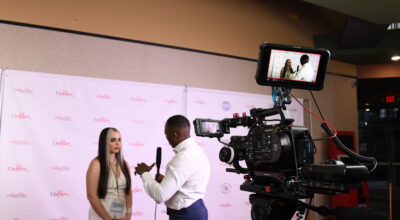LOU Community Bucks Mississippi Giving Trends
Published 11:06 am Monday, November 23, 2020
A recent study of charitable giving in America ranked Mississippi among the bottom for both the amount of money and time residents statewide donate compared to those in other states.
However, local officials say in their view, Oxford and Lafayette County buck that trend despite the ongoing unmet needs for charitable assistance in the region.
The WalletHub “Most Charitable States” study ranked Mississippi 47th out of 50 states overall, which devised the rankings by comparing the states in 19 indicators of charitable behavior. Mississippians placed 49th in volunteer service time and 30th in charitable giving. Only Louisiana, New Mexico and Arizona ranked below it in overall rankings. Utah was declared the most charitable state, followed by Minnesota, Maryland, Oregon and Ohio. According to the study, the U.S. remained the most generous nation worldwide, with U.S. donors giving more than $449 billion to charities in 2019, and 69 percent of those funds coming directly from individuals.
“We are blessed here in Oxford to have so many people that give back in a variety of ways not only giving donations and volunteering but I try to tell people even as simple as sharing a post on social media to allow more people to learn about the needs here and all the issues we face, that helps,” said Kurt Brummett, the executive director of the United Way of Oxford-Lafayette County.
“Whenever something like that comes out, I always ask what data they are using,” he added, referring to the WalletHub study, “I don’t know the source of the data, but it is definitely not what I see every day.”
Brummett added he doesn’t believe the study would hold across northeast Mississippi either, noting his sister organization in Tupelo also typically does well year in and year out in terms of donations and volunteer hours.
Year after year, however, Brummett said the United Way and its partner agency have seen a widening in the gap between available resources and the needs of the community. The COVID-19 pandemic is only exacerbating the problem, especially as the holidays and winter approaches.
Many charitable organizations were already reporting a decrease in individual contributions over the last years, which they attribute in part to the change in the tax code, that allowed individuals to take a larger general deduction instead of itemizing things like charitable deductions to lower their overall tax burden. In addition, Brummett said, there have been numerous new charitable organizations open in the region, which are now competing for the same funds. Add to that the number of businesses that have closed or are struggling due to COVID-19 restrictions and shutdowns and the situation is growing more alarming.
“The lack of funding right now is worrisome. Our partners are worried about how long this is going to continue,” Brummett said. “The needs were increasing before COVID – all it did was cause the needs to increase substantially from there.”
Utility, rent, mortgage and food assistance are the most requested need, said Brummett, noting often if one of those needs goes unmet, then other needs arise too. For instance, a family may have to choose between making a mortgage payment and purchasing a needed medication.
United Way’s agencies reported a large spike in requests for assistance when the enhanced federal unemployment benefits ran out in late summer and the need has only continued to grow and the agencies are bracing for another spike, which is typical for the season. “Need always increases the closer you get to the holidays for whatever reason. That has been true this year as well, its just the number of families that are having the need has just grown significantly.”
In addition, an analysis of American unemployment this week by the Century Foundation, a progressive think tank, reported 12 million Americans could lose their unemployment benefits the day after Christmas. This is due to the expiration of two programs authorized by the Coronavirus Aid, Relief and Economic Securities Act, or CARES Act. The first is the Pandemic Unemployment Assistance program that provides 7.3 million gig and freelance workers with jobless benefits and while another 4.6 million could lose their Pandemic Emergency Unemployment Compensation as well. The PEUC authorized an additional 13 weeks of unemployment beyond the typical 26 weeks states provide.
In addition, the federal moratorium on evictions and forbearance on mortgages are also set to expire at the end of the year. Meanwhile, Congress remains deadlocked on providing additional economic relief and 742,000 Americans filed initial jobless claims during the week ending Nov. 14, up 31,000 from the previous week, according to the Labor Department.
Brummett stresses, however, that an individual can make a difference not matter how small their donation of time or money. “With our meals on Wheels program, it costs $3.11 to give a meal. That’s three dollar bills, a dime and a penny,” he said, continuing, “$10 donation provides a workbook for our adult literacy program with the Lafayette County Literacy Project, while $25 is enough to get a child in our community a monthly book through the Dolly Parton Imagination Library project.”
Any of those seemingly small donations can change a life, said Brummett.
“It doesn’t necessarily take a check of $100 or $500,000 to make a real difference. It can be as small as putting some change in a collection canister and letting those pennies and dimes add up,” he added. “Every dollar makes a difference. If you have within a community several people who do that, it becomes a larger and larger number. It doesn’t have to be a significant amount to make a difference.”





